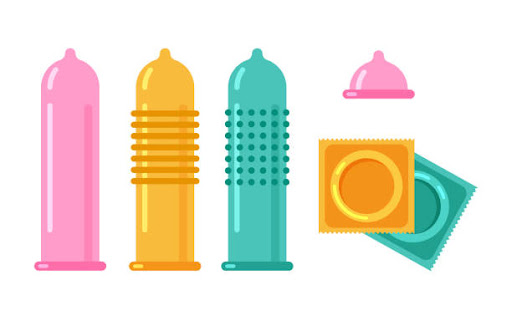Mis-Contraception: Reducing trends in the Use of Condoms
The college years are the prime time for sexual exploration and expression. An increased sense of freedom and openness reveals new worlds for young adults. However, in recent times, there has been a reduction in the use of condoms as a means of protection. This has been seen especially among college-going students. This blog aims to analyse some of the crucial reasons for the same.
New York University recently concluded an analysis of unsafe sex at college campuses across the country. They concluded that students become more likely to have unprotected casual sex as they progress through college. There are two aspects to this study – Firstly, the use of condoms during hookups drops by about 40% between freshman year and sophomore year, and the probability of unprotected casual sex increases from 7% to 16% among women and from 6% to 15% among men. Secondly, students from highly educated backgrounds use condoms at a lower rate, relative to their peers, and students from less educated families, in contrast, use condoms more consistently during year 1, but thereafter quickly adopt the behaviours typically exhibited by their peers from more highly educated backgrounds.
Analysing this data, we understand how counterintuitive it is. While people would expect that as college progresses, students become more mature and responsible, this data presents the opposite picture. A closer look shows that there’s an abrupt drop in condom use and this shift in the usage of protection is not similar for all demographics. It turns out that students from disadvantaged backgrounds are more likely to use condoms when they arrive in college compared to students from privileged backgrounds. This presents a classic understanding that one’s perception of risk is affected by the community they live in. Drawing a parallel to India, as per the data published by the National Family Health Survey, less than one in 10 men use condoms in India, while nearly four in 10 women undergo sterilisation to avoid pregnancy, thus pointing towards an upward trend in female sterilisation.

What are the causes of reduction in the usage of condoms?
- Condoms hinder sexual pleasure – What is appalling is that young adults acknowledge an indirect correlation between the usage of condoms and sexual pleasure. Men have rated unprotected vaginal intercourse, but not condom-protected vaginal intercourse, as more pleasurable, and both women and men rated unprotected vaginal intercourse as significantly more pleasurable than condom-protected intercourse. It has been seen that the refusal of condom use by men is because of the perception that they interfere with a sustained erection.
- A sense of neglect – Young adults feel that this is their time to experience life in its fullness without restrictions – to experience different partners and sexual pleasure. Sometimes we also lose control while sexually aroused and neglect to use a condom. It is often seen that in the moment of heightened tension when there is no condom around, rather than pausing we continue to have sex, without one.
- Use of Alcohol – Alcohol use is also found to be a major barrier to condom use. It has been reported that alcohol and illicit drug use also make youth vulnerable and less likely to use condoms. Because, if one of the partners is drunk, the condom is either not correctly used or not used at all.
- Lack of trust – Asking for condom usage in a long-term relationship is seen as a lack of trust. Condoms were perceived to be something that is to be used at the beginning of a relationship when there is still a lack of trust and commitment. Conversely, the need to continue using a condom is seen as a sign of distrust or as people would say ‘lack of real love’.
- Gendered usage – It has been a general trend that in a patriarchal society, men usually have an upper hand in deciding when and how they wanna have intercourse. Generally. The male partner decides on the use of a condom and if he is not willing, then it is most likely not used. Women, on the other hand, want to preserve their relationship by pleasing their partner or making sex more enjoyable by not insisting on a condom.

Way Ahead:
What is of foremost importance is to understand and accept the fact that college-going students are engaging in consensual sexual activities. Even though it might not fall in line with the orthodox mentality of the surroundings. It is important to make sure that there is no disinformation surrounding conversations about sexuality. As one of the primary reasons for the reduction in the use of protection is that we young adults can be ignorant of the risks of unprotected sex and there is a lack knowledge about the benefits of using condoms.
Preventing unwanted pregnancies is not the only goal of using condoms. They are essential to reduce the risk of Sexually Transmitted Diseases (STDs) and HIV/AIDS. Not using protection is not a sign of a lack of trust or belief in your partner. Many couples learn to enjoy using condoms as part of their sexual foreplay and in fact, many couples say they have better sex when they use condoms because they can focus without any anxiety on their sexual pleasure without the worry about unintended pregnancy and sexually transmitted infections (STIs).
It is important to bust the myth that not using a condom can make intercourse more pleasurable as there is no evidence to suggest the same. Protection is important but so is pleasure and condoms offer both. In today’s time, condoms come in various sizes, styles, materials, and textures that can help increase sensation for both partners. Additionally, condoms delay ejaculation (cumming), which makes sex last longer.
CONCLUSION
Post-puberty and teen ages are the prime time for sexual exploration and expression. College freshmen, first time away from their homes, find themselves amid other kids their age, with similar levels of heightened sexual desires. While engaging in any sexual act, we always want to feel desired and seek admiration and pleasure from our partner. However, that does not mean that we have to give in to the demand for not using a condom.
Furthermore, while college can be a time of exploration, students must be aware of their boundaries, communicate openly with their partners, and prioritise their safety and well-being. Engaging in responsible and respectful sexual behaviour is paramount at any stage of life. As always, it’s essential to practise safe sex and be aware of the potential risks associated with sexual activity. Education about consent, safe sex practices, and healthy relationships is crucial for all individuals, regardless of their life stage.
Author

